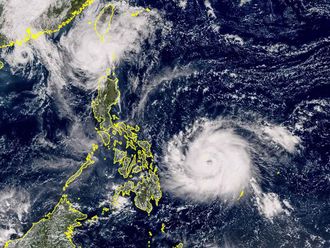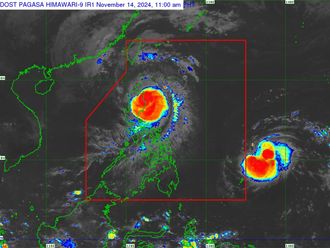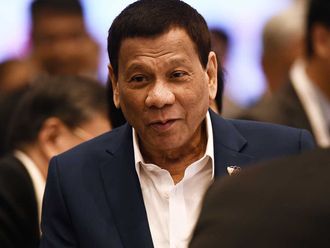Manila: The Philippine government and a large Filipino-Muslim group have signed a paper that documented their peace talks that began in 1997, prospered during the administration of outgoing President Gloria Arroyo, and they should continue during the reign of President Benigno “Noynoy” Aquino, rebel and government leaders told Gulf News.
“We signed a two-page document entitled ‘Declaration of Continuity for Peace Negotiations between the Government of the Republic of the Philippines and the Moro Islamic Liberation Front,’” announced MILF’s chief peace negotiator Mohagher Iqbal, after two-days of talks in Malaysia.
“The Declaration included terms of reference of the humanitarian component of the International Monitoring Team,” Iqbal said, adding the document included 14 points about the achievement of both parties since since they started holding peace talks in 1997.
In a press statement given to Manila’s Foreign Affairs department, Philippine government negotiator Rafel Seguis said, “We put closure to this stage of the peace negotiations with a clear statement by both parties, that we will preserve our gains and accomplishments, and work our best for the continuation of the talks. We give honour to our past, and anticipate the future with great hope.”
The Declaration also included a “retrospective affirmation of our accomplishments and a recapitulation of our past discussions as we toiled to come up with an agreement,” said Seguis.
Arroyo will step down on June 30. Aquino will be proclaimed next week.
In essence, the Philippine government and the MILF agreed to continue observing the ceasefire agreement that they signed for the fourth time in late 2009 so that they could resume talking after a lull in 2008, Iqbal said.
Norwegian peace monitors will soon join an international team that has been monitoring the implementation of the ceasefire agreement between the Philippine government and the MILF, said Iqbal.
Norway is the third non Organization of Islamic Conference (OIC) member country that is joining the International Monitoring Team (IMT) to monitor development, humanitarian, and rehabilitation projects for Filipino-Muslims, specially those who were displaced by decades of war between government forces and MILF fighters in the south, said Iqbal.
Peace-keepers from European Union recently joined IMT to help in the livelihood projects for internally displaced civilian residents in the south.
Japan was the first non OIC member country to join IMT to monitor development and rehabilitation projects for Filipino Muslims in the south.
Peace keepers composed of soldiers and policemen from Malaysia, Brunei, and Libya were the first OIC member countries that joined the IMT when the Philippine government and the MILF agreed in 2004 to allow a foreign group to monitor the implementation of their ceasefire accord that was signed in 2001.
Some 600,000 people were displaced when three renegade MILF commanders attacked civilian villages in the south in August 2008.
Renewal of hostilities was prompted by the ruling of the Supreme Court in 2008, when it prevented negotiators of the Philippine government and the MILF from signing a land deal meant to enlarge an existing Muslim autonomous area in the south.
Some 120,000 of the displaced people remained in temporary settlement areas since 2008, social workers said.
When the Philippine government and the MILF signed their fourth ceasefire agreement in 2009, they also agreed to enlarge the function of the IMT, to allow non OIC member countries to be part of it.
The two parties started holding peace talks in 1997 to attain a comprehensive peace settlement in the south. In 2001, Malaysia, an OIC member country, started brokering the peace talks.
Earlier, Aquino said he would continue holding peace talks with the MILF. But Iqbal said he was not sure how advisers would influence Aquino in forging a political settlement with the MILF.
A political settlement would invite investment in oil and mineral-rich Mindanao in the south, political analysts said.










